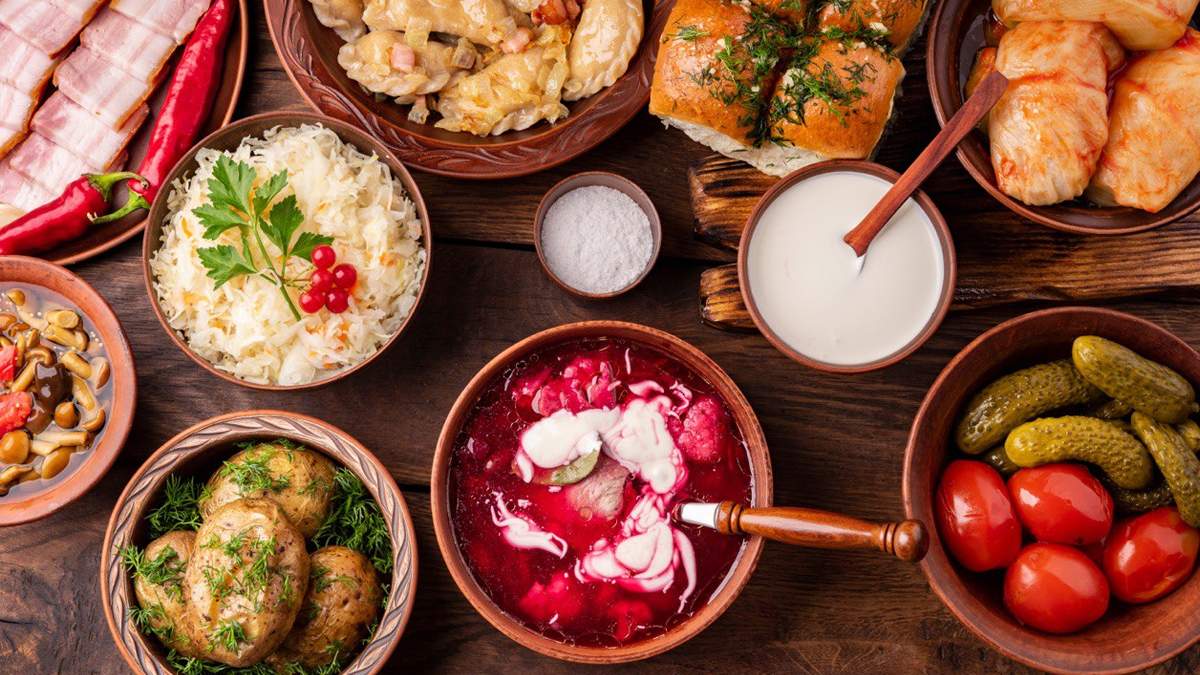
15 January, the first gastronomic meeting took place in Lviv, bringing together famous gastro bloggers, restaurateurs, and experts of Ukrainian, in particular Lviv cuisine. It was moderated by Volodymyr Hlashchenkov, Chairman of the Supervisory Board of diary procedure company «Molokiya«, and Ihor Lylo, a researcher of Galician cuisine. Tvoe Misto media-hub provided a broadcast of the gastronomic meeting and recorded the most interesting opinions of gastronomy and restaurant experts.
«It all started in 2013,» Lviv historian and researcher of Galician cuisine Ihor Lylo says, «when several enthusiasts gathered at the Galician Cuisine Club and started talking about what cuisine is in our area.» Historically, Galicia had a different ethnic face, Ukrainians, Jews, and Poles coexisted here. Thus, with regard to the component of local cuisine, the task arose: either to return to history or to create a new one. According to Ihor Lylo, gastro-enthusiasts decided to combine these approaches.
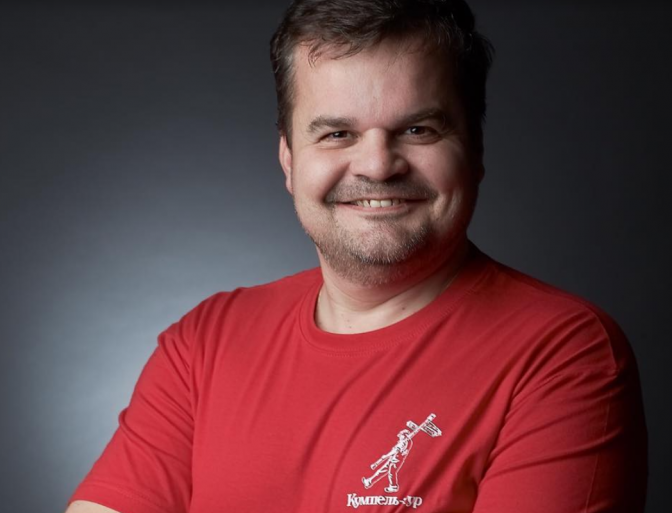
«We had a task ahead of us – either we first go into history, or write everything again. We decided to combine it. Today, we can say with confidence that we know the historical component. My colleague Vsevolod Polishchuk once told me that nowhere in Ukraine, except in Galicia, there are doubts about whether Galician cuisine exists. In fact, the name is quite conditional. We had to attach ourselves to the land on which we live. But also remember that Galicia in Austrian times was a territory from Krakow to Ternopil. On the other hand, what we created in Lviv caused unprecedentedly interesting things, and regional cuisines began to develop intensively throughout Ukraine,» – a researcher of Galician cuisine says.
According to him, despite the fact that local cuisine is expensive and difficult, its development is still taking place, and people are looking for answers to the questions they face. The cuisine is a broad concept» it’s a representation, cyclicity, seasonality, and there is a wide range of things that are worth talking about.
Gastro-enthusiast Yulia-Aurora Ohorodnyk five or six years ago believed that Ukrainian cuisine could become a new world discovery, but she sees that this is still a long way off. According to her, there are several problems that prevent Ukrainian cuisine from occupying its niche in the world: it is insufficiently researched and described without separation from Ukrainian Soviet cuisine. Moreover, in addition to restoring the culinary heritage, it is necessary to work on creating a new Ukrainian cuisine.
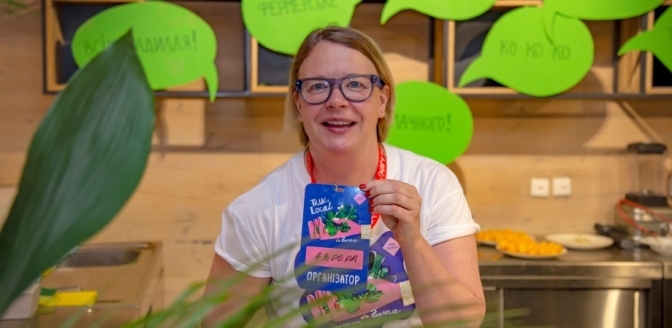
«We are encapsulated in our culture. Therefore, any knowledge we have about Ukrainian cuisine is rather ethnographic: my grandmother cooked like this- and that’s the only right way. I noticed this on the incredible amount of comments under the post about lard made by Ostap Ukrainets. People wrote «what, do other nations eat lard too?» I observed the same thing when I started teaching in the All About Borscht community, and there were references to the fact that the same borsch is prepared in China, Argentina and Japan. But most commentators said they were cooking it wrong, and were eager how [this dish] could «reach» there,» – she said.
The expert claims that the situation is the same with the fermentation of products. When Ukrainians hear that, for example, it’s a trend in the Scandinavian countries now, they note that we’ve practised fermentation of cabbage, apples and cucumbers long ago. But the fact is that nothing further «moves» with our cabbage, while Scandinavians are now fermented any products – from spices to birch leaves.
«The concept of the new Nordic cuisine would be interesting for us to rethink Ukrainian cuisine. They started from the product, closing the topic of traditional recipes «like the grandmother cooked». Two years ago, I was at the «NOMA» restaurant, the menu was called «Forest and Game». And all these dishes can be restored in Ukraine because we are 90% the same as the Scandinavian countries in terms of products. Everyone looked in the direction of Moscow for a long time, then – in the direction of Italy, but the Nordic way is very simple – understand the products and use all cooking techniques. A modern chef sees no boundaries,» – Yulia-Aurora Ohorodnyk explains.
Mark Zarkhin, a Lviv restaurateur and founder of the FFS Company, also believes that it’s necessary not only to restore traditional cuisine, but also to create a modern Ukrainian one, without fear to experiment. Now, the main trend in restaurants is the use of products from local producers, although this affects the price of food.
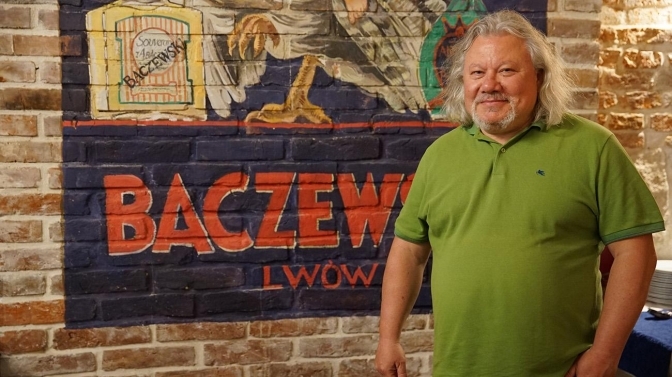
«There are dishes that have been prepared historically here. This is our heritage, and we have not preserved this legacy. But it can be restored, and that’s good. This is part of our history, which we have neglected for many years, unlike the Italians or the French. Another story is modern cuisine. You can’t force people to eat what historians and bloggers say. We have another problem: I’m sorry, we do not eat, but devour... For some reason, a large portion is important to us. Of course, a large portion in restaurants will look for a cheaper product. Products grown according to the «canons» of culinary heritage may not be cheaper, but they are high quality and useful. The food we currently order in Ukrainian restaurants will be available only to very wealthy people in the future. From childhood, children need to be taught to eat little, but high quality and delicious [food]. – he thinks.
The restaurateur emphasizes that Ukrainian cuisine is as diverse as a mosaic, that is, it’s like the regions where it comes from. «It’s difficult because we have identity problems, but it’s good because we can share experiences,» – Mark Zarkhin said. – If you ask Italians what Italian cuisine is, they will say that it is steaks and fish, although we present pasta and pizza. Similarly, if you ask foreigners what Ukrainian cuisine is, they will call dumplings and borscht, although we understand that this is not the case, not only these dishes.»
The restaurateur believes that it is very important to answer the question of what is traditional Ukrainian cuisine because in general, these are dishes made by Ukrainians that can be tried in Ukraine. But no restrictions are needed. In this way, a kitchen will be formed, which will eventually be said to have been created here in this area.
«Also, restaurants have become more than just a place where people come to replenish protein, fats and carbohydrates. Nowadays, restaurants are places where a lot of important things happen. People come there emotionally, decide cases there, declare themselves. There is social contact. In developed countries, these are the most active places of social communication. No wonder the number of restaurants in the Soviet Union was limited,» – Mark Zarkhin says.
Oleksii Volkov, President of the All-Ukrainian Association of Gastronomic Tourism, believes that Ukrainians should first develop a «library» of tastes in order to revive Ukrainian gastronomy and begin to understand it. «There is a product in Ukraine called ‘cider and honey’. At competitions in London, USA, Italy, its manufacturer wins awards. And in Ukrainian competitions, he wins «bronze» and «silver». I use this product in my excursions: dry cider, dry fermented honey, dry fermented beer. Feedback among people is negative – they are annoyed by these tastes. And abroad, experts recognize and reward it. This is nonsense. We, using our products, do not have that «library» of tastes, we do not have the mechanism and a brain to estimate and interpret the corresponding taste», – he explains.

According to Oleksii Volkov, Ukrainians already have a lot of dishes and technologies in the history of gastronomy, which are now in trend all over the world, and we can be proud of that.
«I have tourists from other countries who are delighted when I show them our sauerkraut, pickled cucumbers, eggplant, garlic. What is on trend now are fermented foods that we have been consuming almost every day for a long time. Our sauerkraut is already super cool. But, despite the ethnographic history of Ukrainian cuisine, we have the archives of Sophia of Kyiv, Kyiv-Pechersk Lavra, including accounting records. Studying them, we see what foods were bought 200, 300, and even 400 years ago. There were oysters, cuttlefish and Scottish fish,» – the expert said.
Oleksii Petelko, the founder of HoReCa agencies «SHUM« and «European Culinary Heritage«, says that three years ago Lviv region signed an agreement on joining Europe’s culinary heritage. This has been transformed into various interesting culinary projects. Therefore, we can now see how gastronomic experiments are developing not inside institutions, but on the ground, with farmers.
«There are new bold experiments, not limited to any framework. For example, the Horodok district of the Lviv region is experiencing a real cheese boom. Coronavirus and digitalization encourage people to order interesting products with home delivery. Due to the pandemic, local producers realized that it would be difficult to work with restaurants, and switched to working with the end user. So in recent years, sales have increased. In two years, we will be able to better reveal the local product in restaurants because people will be ready for it, – he said.
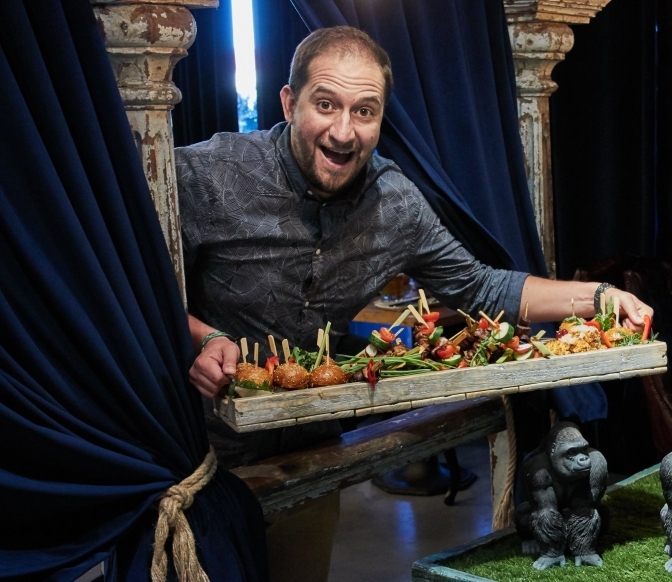
Marianna Dushar, a Lviv gastro-blogger and researcher of Ukrainian cuisine, says that we should nurture our tastes and support people who can produce those tastes.
«The situation with honey is absurd because it is an authentic Ukrainian taste, which is recorded in chronicles, ethnography. Our brain must remember this taste. We are not ready for this, because our receptors have been damaged by all sorts of «shmurdiak» [cheap low-quality wine] for decades. This applies to cheeses with mould, dishes according to old censuses, which must be tried to restore. And here is a big aspect of the social responsibility of those who do it. Chefs, media stars, public figures,» – she says and explains the phenomenon of how Ukrainian cuisine has survived among the diaspora and why it differs from traditional cuisine in Ukraine.
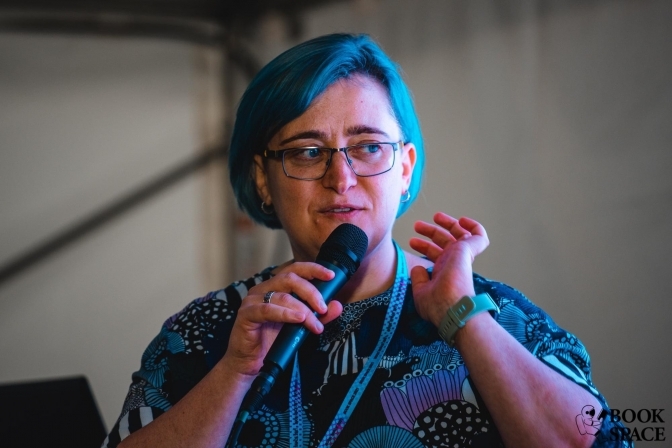
«The diaspora is mostly the third wave of emigrants who left after World War II. Their goal was to preserve Ukrainianness. Assimilation began in the 1980s. For example, the Rainbow Restaurant is a local cafe in New York with cigarettes and newspapers. There’s an immigrant environment in the East Village, they recreated a comfortable environment. «Rainbow» works as an embassy of Ukrainian cuisine in New York, but it adapts flavours so that they are interesting to Americans: they make dumplings with goat cheese and arugula or dumplings with turkey or borsch. So this is Ukrainian-American cuisine, « – Marianna Dushar says.
According to her, Ukrainian cuisine in the diaspora feels great. The phenomenon of dumplings and borscht for sale is a good practice, but we do not have it…
«It’s about the vision of our own cuisine that we can show the world. Whether it’s local farm products, wines, meat, or modern food experiments. We are limited only by our imagination,» – she concludes.
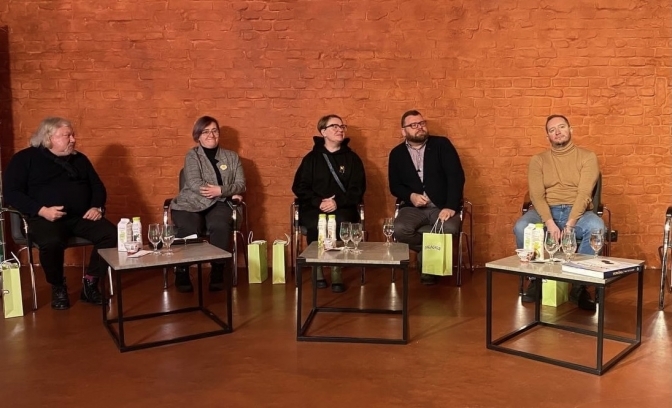
We will add that «Lviv Gastro Meetings» was conceived as a place of search for landmarks and meanings to unite professional and talented people: scientists, chefs, restaurateurs, marketers, all those who are not indifferent to cuisine as part of intangible cultural heritage.
It is a platform where they discuss, listen, study together and look for good solutions. And they help Ukrainian cuisine to return to its rightful place in its own country and on the world map. Here they discover themselves and gladly accept the experience of others.
You can watch the gastronomic meeting in Lviv here:
Anna Chystiakova, Yulia Osym
Translated by Vitalii Holich
You can read a Ukrainian language version of this story here.
Follow Lviv Now on Facebook and Instagram. To receive our weekly email digest of stories, please follow us on Substack.
Lviv Now is an English-language website for Lviv, Ukraine’s «tech-friendly cultural hub.» It is produced by Tvoe Misto («Your City») media-hub, which also hosts regular problem-solving public forums to benefit the city and its people.












